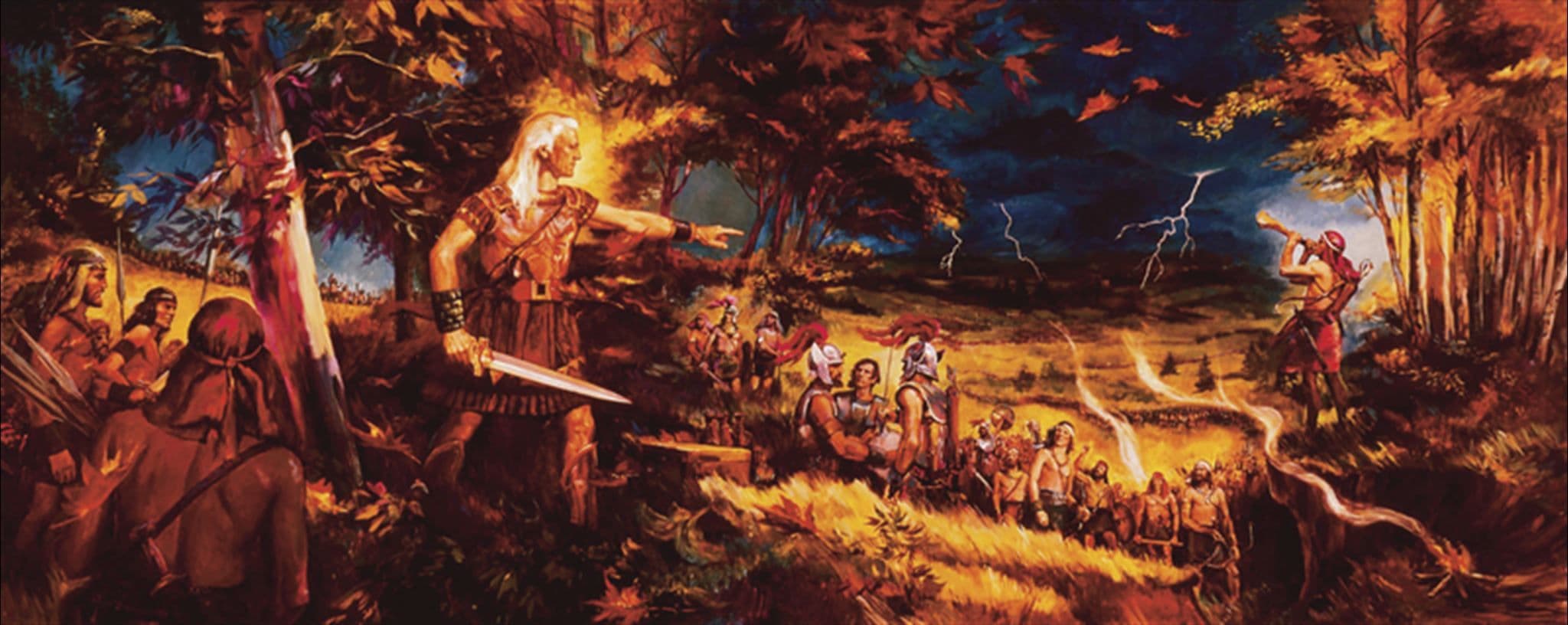Evidence #353 | June 27, 2022
Book of Mormon Evidence: Wordplay on Boaz
Post contributed by
Scripture Central

Abstract
The name of the city Boaz, which the Nephites were too weak to maintain, is ironic in light of the Nephites’ repeated boasting in their own strength.Ironic Wordplay in the Bible
Some examples of wordplay in the Hebrew Bible involve irony. For instance, the book of Judges describes an Ephraimite named Micah who stole silver that his mother had dedicated to God, after which he set up an idolatrous shrine. The name Micah means “who is like God,” which is ironic since Micah’s idolatry is depicted as a flawed imitation of godly behavior.1 Because names are rare in the final chapters of the book of Judges, the writer’s reference to Micah seems intended to emphasize the false godliness among the people generally, especially in relation to their worship of idols (Judges 17:6; 21:25).
The Biblical Name Boaz
In the Bible, Boaz was the name of the husband of Ruth who was also an ancestor of King David (Ruth 2:1). Boaz was also the name of one of the two brass pillars which stood at the entrance to the porch of Solomon’s temple (1 Kings 7:21), which was understood as representative of “Yahweh’s presence and power.”2 Biblical scholars have suggested several possible meanings for the name Boaz.3 It was most likely derived from the Hebrew verb azaz (“to be strong”)4 and would mean either “in strength” or “in him (is) strength”5—a likely reference to the strength of Yahweh.6
Nephite Boasting and Boaz
This proposed meaning of Boaz is interesting in light of Mormon’s reference to a city of that name in the final years of his people. Mormon tells of how the Nephites engaged in a series of battles at a strategic region anchored by the fortified cities of Desolation and Teancum. After initial success defending themselves, the Nephites “began to boast in their own strength” (Mormon 3:9). This misguided self-confidence led them to engage in an offensive maneuver that led to a terrible loss (Mormon 4:2). Unfortunately, they didn’t learn their lesson, for after another temporary victory, “they did again boast in their own strength; and they went forth in their own might” (Mormon 4:8).
Mormon’s repeated emphasis on the Nephites’ false perception of their own “strength” or “might” foreshadows their impending downfall. Soon after their second round of boasting, the tides of war permanently shifted in the Lamanites’ favor, causing the Nephites to flee “to the city Boaz” (Mormon 4:20). This scenario is, of course, rather ironic, as it invokes the name Boaz (“in [Yahweh] is strength”) just as the Lord removed his strength from the Nephites for good. Notably, Mormon does not mention all of the relevant Nephite cities and villages during this time. He seems to go out of his way to mention this particular location.
Conclusion
During the final Nephite-Lamanite battles, Mormon’s mention of the city Boaz (“in strength” or “in him [Yahweh] is strength”) emphasizes the irony of the Nephites trusting in their own strength and permanently losing essential strength from God at a pivotal time of the conflict. Precedent for this type of irony can be found in the Old Testament, as seen in the use of the name Micah in the book of Judges. As with so many other examples of wordplay in the Book of Mormon, its use of Boaz supports its literary complexity and Hebrew origins.
Robert A. Rees, “Irony in the Book of Mormon,” Journal of Book of Mormon Studies 12, no. 2 (2003): 20–31, 111–112.
Gordon C. Thomasson, “What’s in a Name? Book of Mormon Language, Names, and (Metonymic) Naming,” Journal of Book of Mormon Studies 3, no. 1 (Spring 1994): 1–27.
Bible
Book of Mormon
- 1. Lillian R. Klein, The Triumph of Irony in the Book of Judges (Sheffield: Sheffield Academic Press, 1988), 142.
- 2. Elizabeth Bloch-Smith, “‘Who is the King of Glory?’ Solomon’s Temple and Its Symbolism,” in Scripture and Other Artefacts: Essays on the Bible and Archaeology in Honor of Philip J. King, ed. M. D. Coogan (Louisville, KY: Westminster John Knox Press, 1994), 19.
- 3. Alfred Jones, Proper Names of the Old Testament Scriptures, Expounded and Illustrated (London: Samuel Bagster and Sons, 1856), 78; Edward Campbell, Ruth: A New Translation and Commentary, The Anchor Bible Series (New York, NY: Doubleday, 1975), 90–91; Kenneth A. Mathews, “Boaz,” in Anchor Bible Dictionary, ed. David Noel Freedman, 6 vols. (New York, NY: Doubleday, 1992), 1:765; K. van der Toorn, “Boaz,” Dictionary of Deities and Demons in the Bible, Second Extensively Revised Edition, ed. Karel van der Toorn, Bob Becking, Pieter W. van der Horst (Leiden: Brill, 1999), 177.
- 4. Mathews, “Boaz,” 1:765.
- 5. Francis Brown, S. R. Driver, and Charles Briggs, The Brown-Driver-Briggs Hebrew and English Lexicon (Peabody, MA: Hendrickson Publishers, 2007; originally published in 1906), 127; Jones, Proper Names of the Old Testament Scriptures, 78; Campbell, Ruth, 90; Mathews, “Boaz,” 1:765; K. van der Toorn, “Boaz,” 177.
- 6. Campbell, Ruth, 90–91.